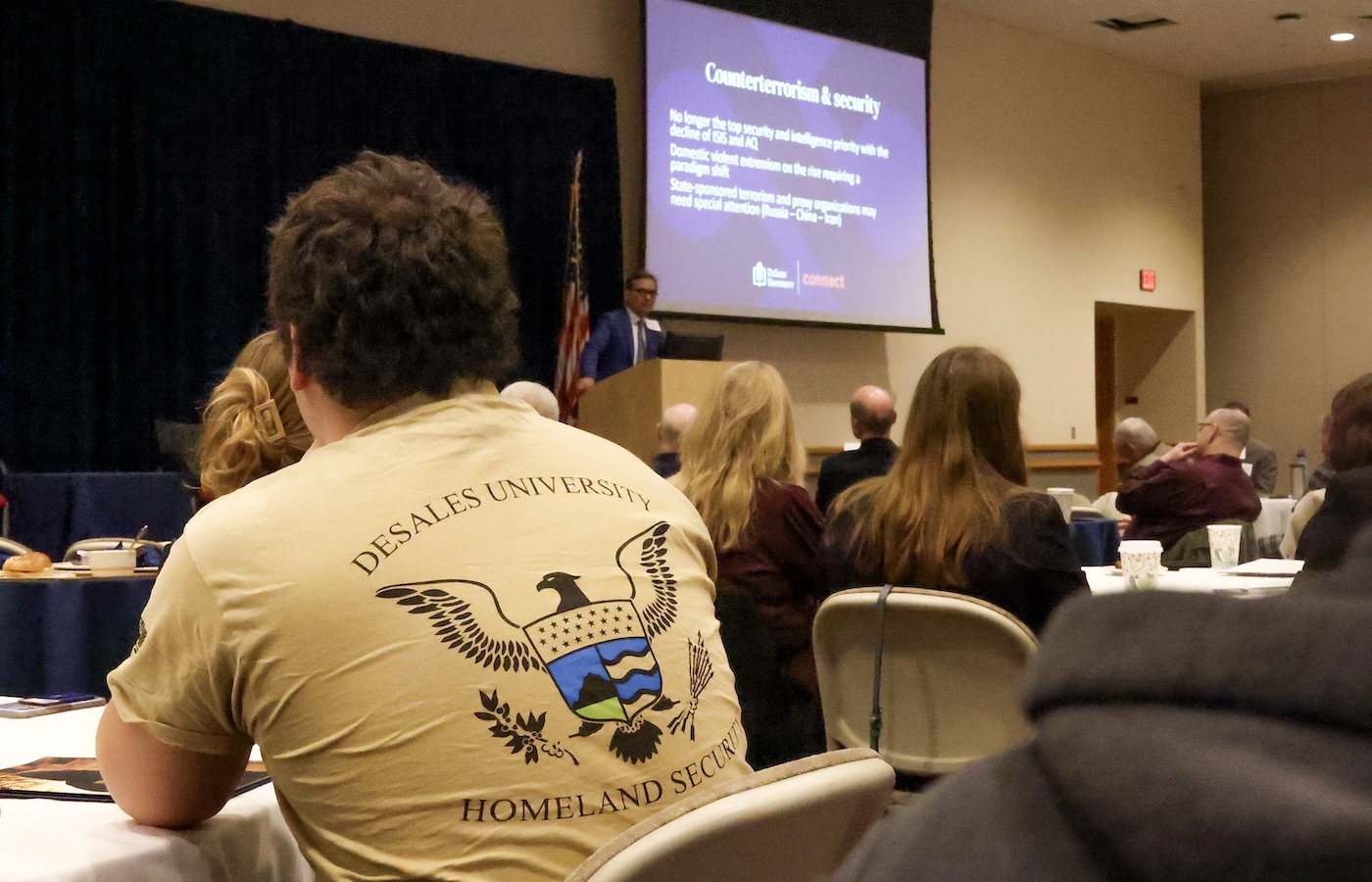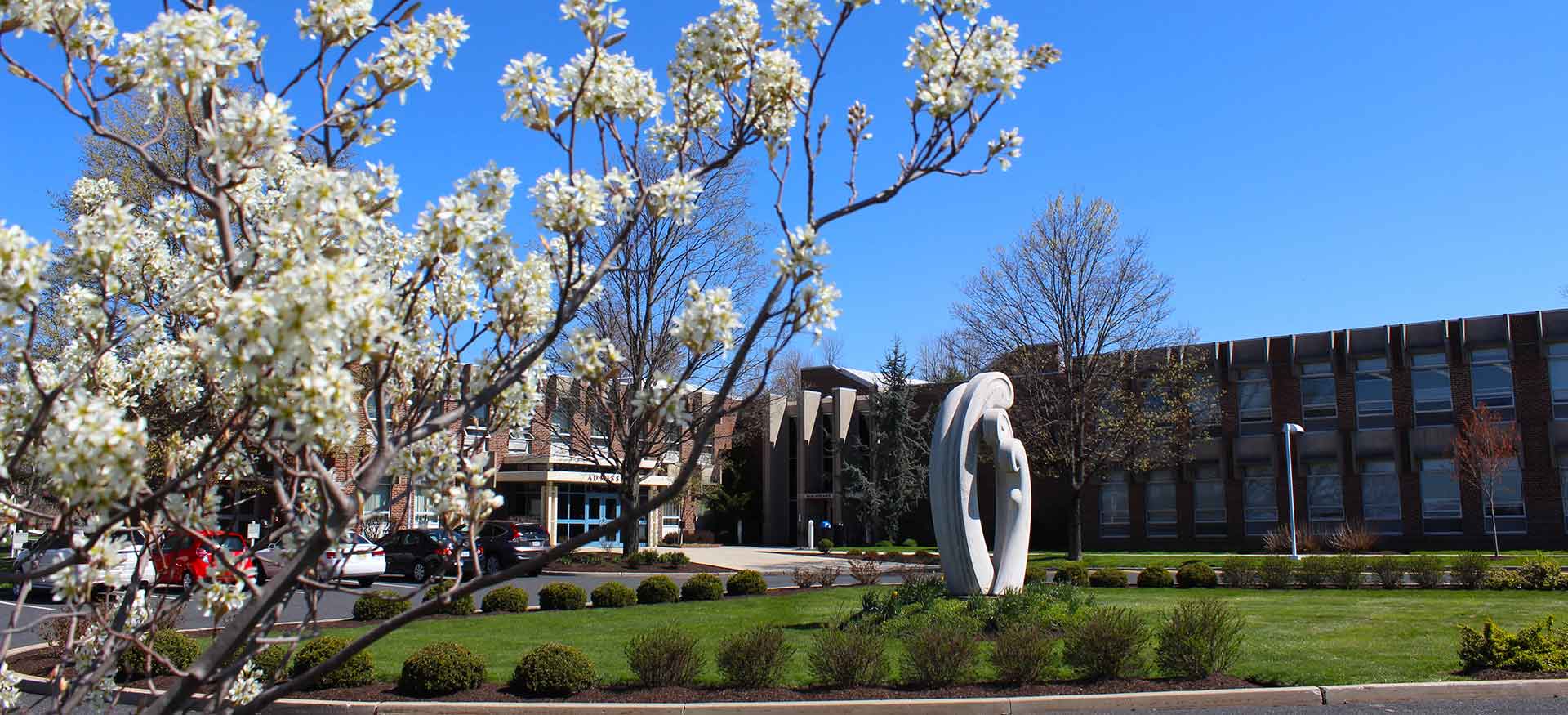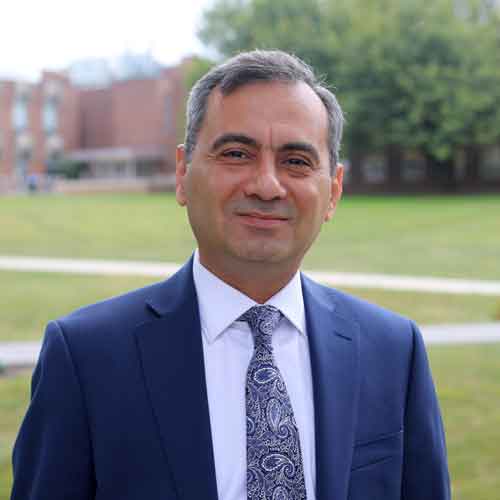News
Regional, National Experts Discuss Terrorism, Crime, and Cooperation at Third Homeland Security Conference

What is homeland security? That’s the question Ahmet Yayla, Ph.D., posed to participants at the Center for Homeland Security’s third conference.
While many narrow the definition down to terrorism, counterterrorism, and 9/11, Yayla told the crowd there’s a bigger and more important understanding that goes beyond traditional thinking.
“Homeland security is our life. Our most basic human necessities rely on homeland security. Critical infrastructure—our water and power—are part of the notion of homeland security. We need to protect our critical infrastructure.”
- Ahmet Yayla, Ph.D., director of DeSales’ Center for Homeland Security
Yayla, director of DeSales’ Center for Homeland Security, was one of a handful of experts to weigh in on this year’s theme of Getting Ahead of Critical Challenges in Homeland Security.
William Walker, special agent in charge of Homeland Security Investigations’ Philadelphia office, discussed his agency’s scope of work. HSI works to combat a wide range of crimes from narcotics smuggling, transnational gangs, and labor exploitation to cyber and financial crimes.
“Most of our work in the traditional sense lies in addressing transnational vulnerabilities that criminals exploit,” Walker said.
HSI has 30 special agent in charge offices across the country, along with more than 200 domestic field offices and an international footprint with more than 80 offices worldwide.
“The beauty of our work lies in the diversity of our mission; we’re not a single scope law enforcement agency,” he said.
Danielle Outlaw, Philadelphia’s police commissioner, also emphasized the importance of cooperation between local, regional, and federal partners. She highlighted the Delaware Valley Intelligence Center, which serves as a fusion center to prevent and respond to all types of hazards, threats, and crimes.
“Having something like this not only allows us to work quicker but smarter, and it puts everybody we need in the room,” Outlaw said.
The DVIC focuses on a number of areas from terrorism and homegrown violent extremism to shootings, cybercrime, and drug trafficking. It also houses a real-time crime center, which monitors public cameras, hourly overdose reports, and a tip line.
On the topic of terrorism, Brian Michael Jenkins of The Rand Corporation detailed his more than 50-year career and offered insights about how the country might move forward at what he called a critical moment.
Jenkins, an Army veteran, chronicled the country’s recent history of violence—from riots and assassinations in the 1960s to a rise in right-wing groups in the 1980s, the Oklahoma City bombing in 1995, and the September 11th attacks of 2001.
While 9/11 was a galvanizing moment that united the country, Jenkins acknowledged that the internet and degree of polarization in today’s society poses a unique challenge.
“Politicians demonize their opponents, there are increasing threats against public officials, and there is extraordinarily low trust in public institutions,” he said.
While Jenkins noted that dealing with domestic violence will be difficult, he takes comfort, in a sense, that the country has been through dark times before.
In addition to Jenkins, Outlaw, and Walker, other featured speakers at the event included Barak Mendelsohn, professor of political science at Haverford College, and Jacqueline Maguire, special agent in charge at the FBI’s Philadelphia field office.





